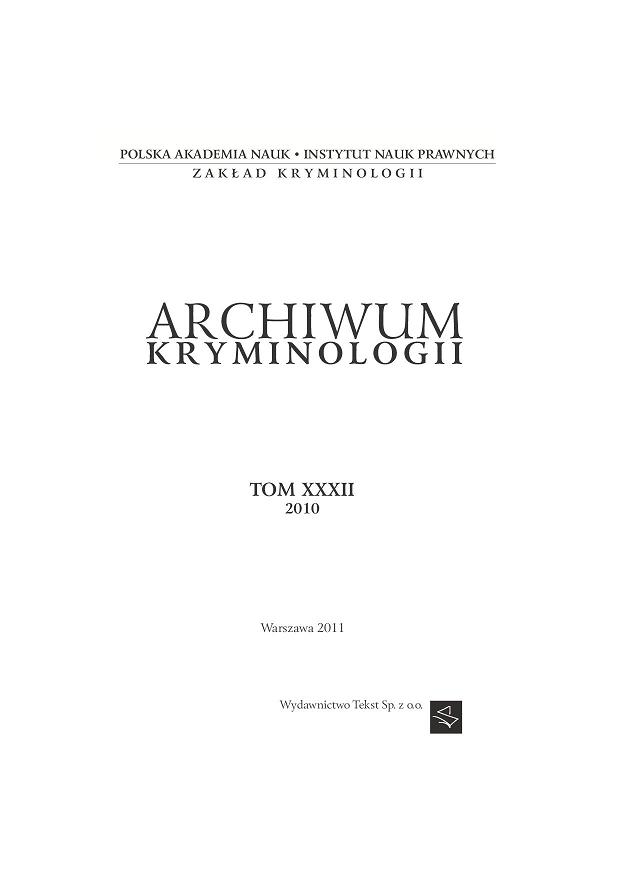Przestępczość o charakterze terrorystycznym w Rosji-wprowadzenie do problematyki
Terrorist crime in Russia-introduction to the problem
Author(s): Katarzyna LaskowskaSubject(s): Law, Constitution, Jurisprudence
Published by: Instytut Nauk Prawnych PAN
Keywords: CRIME IN RUSSIA; TERRORISM;
Summary/Abstract: The publication depicts the phenomenon of terrorist crime in Russia, both in legal and criminological approach. It attempts to define the phenomenon and, subsequently, defines the scope of criminalised acts and the manner of penalisation thereof under Russian law. Consequently the phenomenon, aetiology and prevention are analysed. Such an approach allowed to present the tendencies and threats resulting from this category of crime. Analyses have been aiming at conclusion what are the needs and directions of preventing this phenomenon in Russia. Analyses allowed to establish that the following offences should be deemed terrorist ones: act of terror (article 205), support for terrorist activities (article 2051), public incitement of terrorist activity or public justification of terrorism (article 2052 ), taking a hostage (article 206), organisation of illegal armed unit or taking part in such (article 208), hijacking of an aircraft, a vessel, or a train (article 211), attempt of assassination of public servant or social activist (article 277), seizure of power using violence, or exercise of power with the use of violence (article 275), armed uprising (article 279) public incitement of extremist activity (article 280) organisation of an extremist union (article 282) assault on people, or institutions which are under international protection (article 360). The analysis indicates that abovementioned acts of terrorism are, above all, a threat to public safety, legal government, and the foundations of constitutional order and state security, as well as peace and security of humankind. They have a criminal, political, and international character. They exhibit associations to organised crime and extremist crime. The study found that the reasons of their occurrence in Russia are deeply rooted in social, economic, and political problems. The weakness of the state and its structures, and the inability to solve problems, built up over decades, resulted in the development of the phenomenon which peaked between 1997 and 2004. During this period most false notices of terrorist acts were recorded, while crimes of organizing illegal armed units, and crimes of terror (terrorist acts) were also recorded but to a much less extent. The phenomenon has been undergoing changes for years and requires an appropriate response from the state. Therefore, apart from an improvement of anti-terrorism laws, the authorities should aim to reduce causes and factors which support the development of such crimes, especially to constantly monitor social situation in Russia, including the sources of tension. The authorities should also counteract fundamentalism, ease social tensions on nationality and religion grounds, and additionally control weapon trafficking, ensure adequate preparation of antiterrorist forces in terms of material, technical, and psychological basis.
Journal: Archiwum Kryminologii
- Issue Year: 2010
- Issue No: XXXII
- Page Range: 379-402
- Page Count: 24
- Language: Polish

